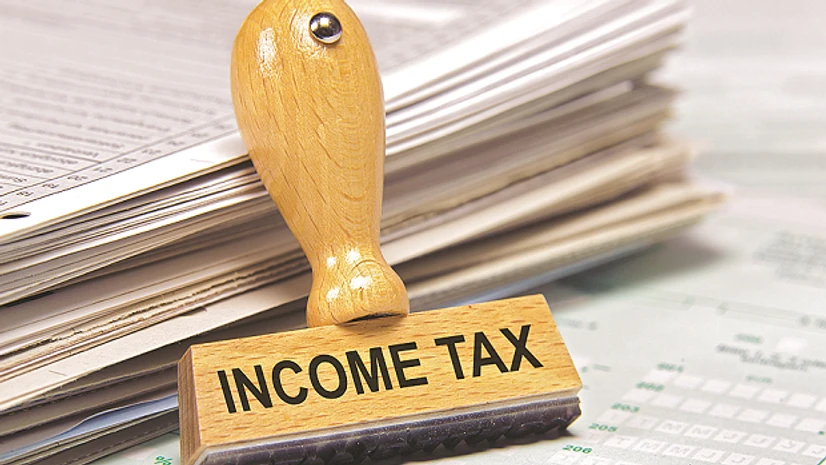The taxpayers’ charter unveiled by Prime Minister Narendra Modi on Thursday evoked favourable response from tax experts.
But they want the government to walk the talk on implementation and not burden assessees with arbitrary assessment and harassment.
But they want the government to walk the talk on implementation and not burden assessees with arbitrary assessment and harassment.
Aravind Srivatsan, partner, Nangia Andersen LLP, said, “While the finer aspects of the incentives available to an honest taxpayer are yet to be released, any step taken by the government will be felt by an honest taxpayer only when he/she is not burdened with arbitrary assessment of tax returns and harassment of tax collection against arbitrary tax demands.”
Srivatsan added that an honest taxpayer will feel and develop trust in the government only when he/she is treated with fairness. It can be accomplished through instant issuance of refunds upon filing of tax returns and electronic assessments duly backed by the standardisation of tax positions and introduction of faster resolution of tax disputes through negotiated settlement process.
The charter also expanded the faceless assessment mechanism and unveiled a faceless appeal mechanism.
Mukesh Bhutani, managing partner, BMR Legal, said the charter’s emphasis on respect for taxpayers’ privacy and maintaining confidentiality stood out — they were absent in the Citizen’s Charter, 2014. “The absence of such categorical statements, in the Citizen’s Charter, 2014, of the Central Board of Direct Taxes had led businesses into difficulties in dealing with speculative news on tax affairs of individuals and corporates coming in the public realm and impacting their right to privacy,” said Bhutani.
Bhutani added it was important to publicise the charter and create an awareness campaign leading to a new era, “which, so far, has been known more for its wrongs than rights it has pursued in the past decade of tax reforms”.
More From This Section
He further added it was equally important that a strong mechanism of accountability is instilled in field officers to act responsibly, keeping in mind the spirit of the charter. “The taxpayers’ charter implementation will be closely watched, given the importance lawmakers have accorded at the highest level,” said Bhutani.
Archit Gupta, founder and chief executive officer, ClearTax, said while the taxpayers’ charter is based on easing compliance, the policy announcements must also reflect in the functioning of the tax administration. “The tax officers need to be trained. The focus needs to shift from merely raising tax orders to supporting taxpayers and truly streamlining assessments,” added Gupta.
Some tax officers found the charter weak and vague when compared to the existing citizen’s charter of the income-tax (I-T) department that specifies stiff timelines for delivery of services, even as the latter does not have legal backing, while the former has.
This has left some puzzled whether they will still need to abide by the timelines mentioned in the citizen’s charter or go by the taxpayers’ charter.
While the taxpayers’ charter only talks about ‘providing timely decisions’ and ‘resolve tax issues in a time-bound manner’, the citizen’s charter specifies timelines for 16 services, including issue of refunds, acknowledgement of communication received, redress of grievances, etc.
Besides listing the rights and duties of taxpayers, the citizen’s charter specifies that grievances must be addressed within two months, and refunds should be issued within six months in case electronically filed.
“It is worse than the earlier version of the citizen’s charter. There were at least specific timelines for providing service to taxpayers. The taxpayers’ charter does not mention that and is quite vague,” said a tax officer.


However, a citizen’s charter is not enforceable by law, while the taxpayers’ charter has been enshrined in the statute of the I-T law.
“While it was not enforceable, it gave clear-cut timelines and standards of delivery. Internally, if my officer was not delivering service within 30 days, one could pull him up. There was a yardstick against which the officer could be evaluated,” said another tax officer. He added that in the current taxpayers’ charter, there is nothing concrete for a taxpayer to seek redress or for a supervisor to punish an officer.
The provisions in the taxpayers’ charter are not ‘justiciable’ (subject to trial in a court of law), with respect to trusting a taxpayer or honourable conduct, pointed out a government official. The tax department is unsure whether the citizen’s charter and the taxpayers’ charter will run parallel.
Announced in Budget 2020-21, the taxpayers’ charter is aimed at promoting voluntary compliance by creating trust between taxpayers and the administration. Giving it in the statute, it is binding on the tax department. The charter lists out the fundamental rights of taxpayers and the basic standards of services they can expect.
A tax expert pointed out that there was an expectation that taxpayers will get compensated for delay in issuance of refunds or other services.

)
